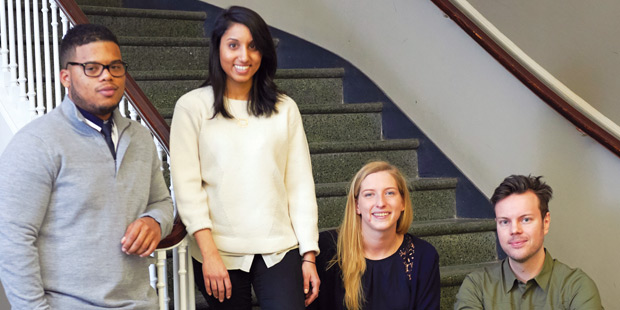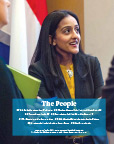Keeping Haitians Informed
Printer Friendly VersionThe Global Justice Clinic (GJC) joined two Haitian civil society coalitions to testify on the right of access to information in Haiti before the Inter-American Commission on Human Rights (IACHR) in Washington, DC, on March 17.
Testifying for the Law School’s clinic, Etienne Chénier-Laflèche LLM ’15, along with representatives from the Justice in Mining Collective and the Mega Projects Observatory, urged the Haitian state to adopt legislation to implement the right to access information. The advocates also called on the government to inform affected communities about tourism and mining development projects, and recommended that it not enact proposed mining legislation that would undermine transparency.
Chénier-Laflèche reported that at the hearing the special rapporteur for freedom of expression said he was concerned about a confidentiality clause in a mining law under consideration by the Haitian government. “This is a very positive outcome,” said Chénier-Laflèche. The confidentiality clause had been the focus of a significant part of Chénier-Laflèche’s testimony as well as the clinic’s accompanying brief.
The GJC’s director, Professor of Clinical Law Margaret Satterthwaite ’99, praised the LLM students’ spirit of solidarity and collegiality with the clinic’s Haitian partners. “What’s special is that the clinic’s effort has been completely student-led, with Etienne in particular playing a unique and inspiring role,” she says.
Astrid Caporali LLM ’15 and Jean-Luc Adrien ’17 also traveled to Washington for the IACHR hearing. Caporali had worked on the brief with Chénier- Laflèche and helped the partner organizations prepare for the hearing, while Adrien, who is Haitian American, translated from Kreyol to French and English, provided research support, and helped coordinate the organizations’ visit to the US capital.
Interest in an IACHR hearing initially grew in Fall 2014 out of discussions between the Justice in Mining Collective and the clinic, notably Chénier-Laflèche, who had previously worked at the IACHR. He first designed and helped lead a training and strategy session on the Inter-American system of human rights law for the clinic’s partner organizations in Port-au-Prince in November 2014. At this gathering— co-led by Chénier-Laflèche; Nina Sheth ’16; Nikki Reisch ’12, legal director of the Center for Human Rights and Global Justice; and GJC’s Haitian partners—participants decided to raise the issue of right of access to information with the IACHR.
In January, Chénier-Laflèche, working with partner organizations, drafted a request for an IACHR hearing and, once the hearing was granted, led the effort to write the brief with recommendations for the state of Haiti. “It’s been impressive to watch the students create this relationship with our partner, author the request, write the brief, and prepare for the presentation,” says Satterthwaite. “Etienne did the heavy lifting on this, but everyone came together on the team.”
—


 Multimedia
Multimedia